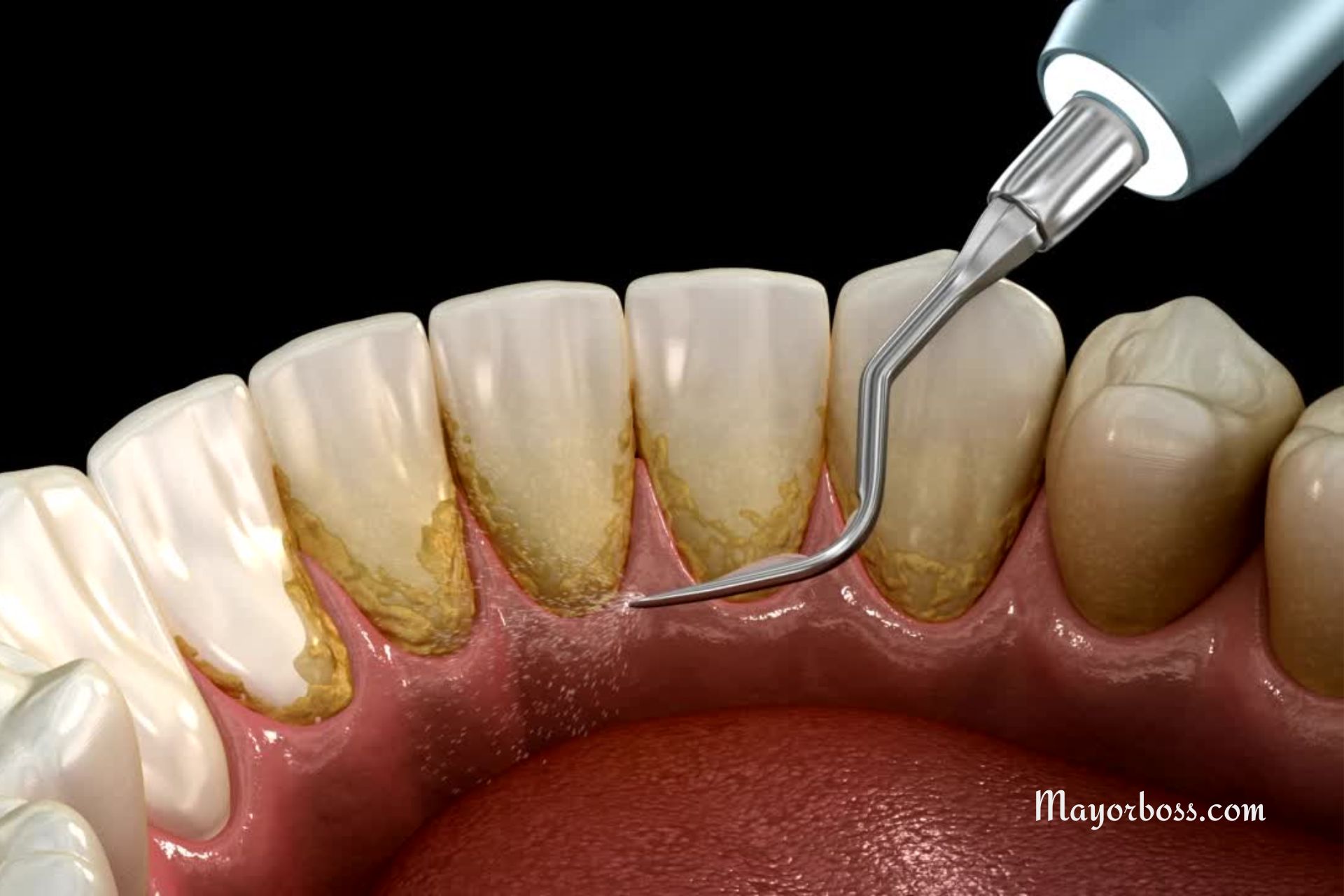7 Tips How to Get Rid of Calcium Buildup on Teeth
Calcium buildup on teeth is also called tartar or dental calculus. It’s a hard, yellowish crust that can form near your gums. This happens when plaque, a sticky film of germs, hardens on the teeth. Tartar can irritate your gums, cause swelling, and make you more likely to get cavities. But you can protect your teeth by following a few simple tips. Below, you will find seven ways to help stop calcium buildup.

1. Brush Often and Gently
Brush your teeth at least two times a day using a soft-bristled toothbrush. Softer bristles are kinder to your gums and tooth enamel. Pick a fluoride toothpaste to help keep your tooth enamel strong. Make sure to brush along the gumline and behind your teeth, where plaque can build up. Use small, gentle strokes instead of hard scrubbing. If you skip brushing, plaque can turn into tough tartar.
2. Floss Every Day
Flossing cleans between your teeth and near your gums, areas your toothbrush might miss. Tartar often starts in these tight spots. Move the floss gently up and down each side of the tooth, curving it around the gumline. If flossing with string is tricky, try floss picks or a water flosser. The important thing is to do it every day.
3. Use a Germ-Fighting Mouthwash
An antimicrobial mouthwash can help kill germs that cause plaque. Rinse after you brush and floss, and try not to eat or drink right away so the mouthwash has time to work. Look for mouthwash with ingredients like cetylpyridinium chloride or essential oils. These can lower the amount of bacteria that turn plaque into tartar.
4. Try Tartar-Control Toothpaste
Some toothpastes have the label “tartar-control.” They may have ingredients like pyrophosphates or zinc citrate. These help slow tartar growth and loosen it when it first starts. Also, toothpaste containing baking soda can get rid of plaque. Ask your dentist which one is right for you, especially if you build up tartar easily. Keep in mind these products help, but they’re not a perfect fix on their own.
5. Watch What You Eat
Sugary and starchy foods help bacteria grow in your mouth. This leads to plaque that hardens into tartar. Try cutting back on sweet snacks and sodas. Drink water to boost saliva, which helps rinse away leftovers. Chewing sugar-free gum can also help make more saliva. Eat crunchy fruits and vegetables like apples or carrots to help clean your teeth as you chew. A diet with plenty of vitamins and minerals keeps your mouth healthy.
6. Go for Regular Dental Cleanings
Even if you brush and floss daily, some tartar might stay on your teeth. Dentists or dental hygienists use special tools to remove hardened deposits. Most people need a professional cleaning every six months, but if you have more tartar than usual, you might need to go more often. During these visits, your dentist checks for gum disease and tooth decay linked to tartar.
7. Take Care of Your Gums
Healthy gums fit snugly around your teeth, making it hard for plaque to settle. If gums become inflamed or recede, more tooth surface is exposed for bacteria to gather. Try not to brush too hard, and floss daily to keep your gumline clean. If you see signs of gum disease, like swelling or bleeding, talk to your dentist for help.
How Tartar Affects the Rest of Your Body
Tartar may seem like a mouth-only issue, but it can affect your whole body. Gum inflammation might be linked to heart problems or other health concerns. Bacteria from your mouth can travel through your blood to other areas of your body. So stopping tartar doesn’t just help your teeth—it also helps your overall health.
When to Ask for Professional Help
If tartar builds up even though you brush, floss, and rinse, it’s time to see your dentist. They may suggest stronger treatments or prescription mouthwash. If you notice signs of gum disease, such as redness or bleeding, get help soon. Early treatment stops problems from getting worse.
Conclusion
Calcium buildup on your teeth can damage your gums and lead to bigger dental troubles. You can prevent it by brushing gently but often, flossing every day, using the right products, and choosing healthier foods. A regular professional cleaning removes tartar and helps spot issues early. Your dentist can also give you advice that fits your needs. Protect your teeth now to keep a bright smile and a healthy body. Don’t wait until tartar becomes a serious problem.
